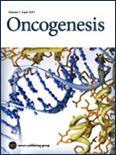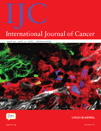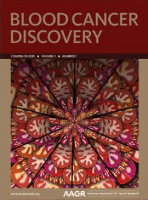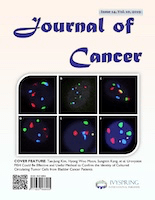
Cancer Research Communications
Scope & Guideline
Pioneering breakthroughs in oncology communication.
Introduction
Aims and Scopes
- Cancer Therapeutics and Targeted Treatments:
The journal regularly publishes studies on novel therapeutic agents, including targeted therapies, immunotherapies, and combination treatments. This includes exploration of drug mechanisms, resistance, and patient stratification based on genetic and molecular profiles. - Cancer Biology and Mechanisms of Tumorigenesis:
Research articles delve into the fundamental biological processes underlying cancer development and progression. This includes studies on genetic mutations, signaling pathways, and tumor microenvironment interactions that contribute to malignancy. - Clinical Trials and Translational Research:
A significant focus is placed on clinical studies, including phase I-III trials, that evaluate the safety and efficacy of new cancer treatments. This also includes studies on biomarkers and patient outcomes to inform clinical decision-making. - Molecular and Cellular Oncology:
The journal features research on cellular mechanisms, including the role of cancer stem cells, immune evasion, and the tumor microenvironment, emphasizing the molecular pathways that contribute to cancer progression. - Cancer Epidemiology and Health Disparities:
Research addressing disparities in cancer incidence, treatment outcomes, and access to care for various populations is a consistent theme. This includes studies that investigate the impact of socioeconomic factors on cancer risk and treatment.
Trending and Emerging
- Immunotherapy and Immune Microenvironment Studies:
There is a significant increase in research focused on immunotherapy, including CAR T-cell therapies and immune checkpoint inhibitors. Studies exploring the immune microenvironment and its role in therapy response are gaining prominence, reflecting the growing importance of immuno-oncology. - Precision Medicine and Biomarker Research:
Publications increasingly emphasize the role of precision medicine, with a focus on identifying biomarkers for patient stratification and treatment efficacy. This trend aligns with the need for personalized treatment approaches tailored to individual patient profiles. - Multi-Omics Approaches:
Emerging research utilizing multi-omics strategies, such as genomics, proteomics, and metabolomics, is becoming more prevalent. These approaches aim to provide a comprehensive understanding of cancer biology and treatment responses. - Targeting the Tumor Microenvironment:
Studies investigating the tumor microenvironment's role in cancer progression and therapy resistance are on the rise. This includes research on stromal interactions, immune cell infiltration, and metabolic reprogramming within tumors. - Health Disparities and Cancer Epidemiology:
There is a growing focus on understanding health disparities in cancer outcomes, with research highlighting the influence of socioeconomic, racial, and geographic factors on cancer incidence and treatment access. This trend reflects a broader commitment to addressing inequities in cancer care.
Declining or Waning
- Traditional Chemotherapy Studies:
There has been a noticeable decrease in studies focused solely on traditional chemotherapy regimens, as research increasingly shifts towards personalized medicine and targeted therapies that offer improved specificity and reduced toxicity. - Basic Laboratory Techniques without Clinical Relevance:
Research papers that focus exclusively on basic laboratory techniques or models, without a clear translational application or clinical relevance, appear to be less frequently published, as the journal emphasizes studies with direct implications for patient care. - Single-Factor Studies:
There is a waning interest in studies that investigate single factors in isolation, such as individual genetic mutations or isolated biochemical pathways, as the field moves towards integrative approaches that consider the multifactorial nature of cancer. - General Cancer Awareness Campaigns:
Papers focused on general cancer awareness and education initiatives without substantial data or research backing are becoming less prevalent, reflecting a trend towards more evidence-based, impactful research.
Similar Journals

CANCER IMMUNOLOGY IMMUNOTHERAPY
Unraveling the Complexities of Immunology and OncologyCancer Immunology Immunotherapy, published by Springer, stands as a premier journal in the fields of cancer research and immunology, holding a prestigious Q1 ranking across multiple categories, including Oncology and Medicine as of 2023. With an ISSN of 0340-7004 and an E-ISSN of 1432-0851, this journal has been a pivotal platform for groundbreaking research since its inception in 1976, continuing to provide insight into the complex interactions between the immune system and cancer. The journal's scope encompasses a wide array of topics, including novel therapeutic strategies, immunological mechanisms, and translational science aimed at advancing treatment outcomes for cancer patients. Renowned for its rigorous peer-review process and high impact factor, it attracts contributions from leading experts and researchers around the globe, positioning itself among the top-tier publications with Scopus rankings that reflect its vital role in advancing the field. Access options are generally subscription-based, ensuring a comprehensive resource for professionals and academics seeking to deepen their understanding and make meaningful contributions to cancer immunotherapy.

Oncologie
Bridging theory and practice in cancer care.Oncologie is a distinguished academic journal published by WALTER DE GRUYTER GMBH, focusing on the dynamic and vital field of oncology. Established in 1999 and continuously published until 2024, this journal provides a platform for high-quality research and advancements in cancer treatment, prevention, and diagnosis. With an ISSN of 1292-3818 and an E-ISSN of 1765-2839, it is indexed in various databases, contributing to its growing visibility. Although categorized in the Q3 quartile for oncology research as of 2023, Oncologie offers essential insights and fosters scholarly dialogue among researchers, professionals, and students interested in oncology. Its unique contributions aim to bridge the gap between theoretical frameworks and clinical applications, making it a valuable resource for those seeking to advance their knowledge and expertise in cancer research.

Cancer Communications
Bridging Knowledge Gaps in Cancer TreatmentCancer Communications, published by WILEY, is a leading open-access journal that has positioned itself at the forefront of cancer research and oncology since its inception in 2017. With an impressive HIndex reflective of its scholarly impact and recognized in the Q1 category for both Cancer Research and Oncology as of 2023, this journal consistently ranks in the top echelons of its field, specifically at Rank #16/404 and Rank #13/230 in their respective categories on Scopus. Cancer Communications aims to disseminate cutting-edge research findings, innovative methodologies, and significant advancements in cancer treatments, thereby fostering a deeper understanding of oncology among researchers, healthcare professionals, and students. The journal operates under an Open Access model since 2018, ensuring that vital research is accessible to a global audience, thus enhancing collaboration and knowledge sharing necessary to tackle one of the most pressing health challenges of our time. Located in Hoboken, NJ, United States, and with a strong commitment to scientific excellence, Cancer Communications remains an essential resource for anyone engaged in the fight against cancer.

Oncogenesis
Advancing cancer research for a healthier tomorrow.Oncogenesis is a prestigious open access journal, published by SpringerNature, dedicated to advancing our understanding of cancer biology and molecular mechanisms of oncogenesis. Since its inception in 2012, this journal has quickly established itself as a leading platform for innovative research, being ranked in the Q1 quartile in both Cancer Research and Molecular Biology categories for 2023. With an admirable impact factor that reflects its exceptional quality, Oncogenesis is indexed in Scopus, holding notable rankings in both Molecular Biology and Cancer Research, placing in the 87th and 83rd percentile respectively. The journal not only facilitates the dissemination of groundbreaking research but also encourages collaboration among scientists and healthcare professionals across the globe. By offering open access to its articles, Oncogenesis ensures that vital findings reach a diverse audience, fostering a deeper dialogue and understanding in the fight against cancer. Based in the United States but with a global reach, the journal remains committed to publishing high-impact studies that contribute to the advancement of knowledge in the realms of oncology, biochemistry, and genetics.

INTERNATIONAL JOURNAL OF CANCER
Transforming knowledge into breakthroughs in cancer care.INTERNATIONAL JOURNAL OF CANCER, published by Wiley, stands as a premier platform for the dissemination of cutting-edge research in the fields of cancer research and oncology. With an impressive impact factor reflecting its rigorous peer-review process and significant contribution to the scientific community, this journal is categorized in Q1 for both Cancer Research and Oncology as of 2023. It boasts notable rankings, being placed 38th among 404 journals in Medicine - Oncology and 32nd among 230 in Biochemistry, Genetics, and Molecular Biology - Cancer Research, positioning it within the 90th and 86th percentiles, respectively. Since its inception in 1966 and continuing to 2024, the journal has played a pivotal role in advancing our understanding of cancer biology, treatment modalities, and innovative therapeutic approaches. While it operates under a subscription model, the journal is committed to making valuable research accessible to a broader scientific audience. Researchers, professionals, and students alike will find the INTERNATIONAL JOURNAL OF CANCER an essential resource for staying abreast of the latest advancements in cancer science.

Wspolczesna Onkologia-Contemporary Oncology
Exploring New Frontiers in Oncology and RadiologyWspolczesna Onkologia - Contemporary Oncology is a leading open-access journal dedicated to the field of oncology and radiology, published by TERMEDIA PUBLISHING HOUSE LTD since 1999. With its ISSN 1428-2526 and E-ISSN 1897-4309, the journal has established a prominent place in scholarly publishing, contributing significantly to the advancement of cancer research and treatment modalities. Located in Poznań, Poland, it operates within a framework of high academic standards, currently holding a Q3 quartile ranking in Oncology and Q2 in Radiology, Nuclear Medicine, and Imaging for the year 2023. The journal serves as a valuable resource for researchers, medical professionals, and students alike, providing a platform for innovative studies and reviews that drive the clinical application of oncological practices. With its commitment to open access, Wspolczesna Onkologia allows for widespread dissemination of knowledge, ensuring that cutting-edge research is accessible to a global audience, thus bridging gaps in cancer care and fostering collaborative advancements in the field.

Advances in Cancer Biology-Metastasis
Pioneering Pathways in Cancer Research.Advances in Cancer Biology-Metastasis is an emerging journal published by Elsevier, aimed at advancing our understanding of the complexities of cancer biology, with a specific focus on the mechanisms and pathways related to metastasis. With an E-ISSN of 2667-3940, this journal offers a platform for researchers, professionals, and students in the fields of Cancer Research and Cell Biology to disseminate innovative findings and discuss novel therapeutic approaches. Though currently classified in the Q4 quartile across both Cancer Research and Cell Biology categories, the journal aspires to enhance its impact through rigorous peer review and high-quality publication. Positioned to cover the years from 2021 to 2024, it seeks to bridge gaps in foundational knowledge and promote collaborative research efforts that could pivot the current understanding of cancer metastasis. Researchers are encouraged to take advantage of this platform to advocate for advancements in cancer biology, making significant contributions that can influence both academic and clinical practices.

Blood Cancer Discovery
Driving Collaborative Efforts for Better Patient OutcomesBlood Cancer Discovery is a premier academic journal published by the American Association for Cancer Research, dedicated to advancing the understanding of hematologic malignancies through cutting-edge research in the fields of oncology, biochemistry, and molecular biology. With an impressive impact factor and recognition as a Q1 journal across multiple disciplines, including cancer research and hematology, Blood Cancer Discovery serves as an essential platform for scholars and practitioners alike, facilitating impactful discourse and dissemination of pioneering findings. This open-access journal, established within the vibrant academic landscape of the United States, aims to bridge gaps in research and foster collaborations to ultimately enhance patient outcomes. Its Scopus rankings demonstrate its vital role in the critical advancement of cancer research and therapeutic development. By inviting contributions from a diverse range of disciplines, Blood Cancer Discovery is poised to drive innovation and inspire future advancements in understanding blood cancers.

Journal of Cancer
Unlocking the complexities of cancer together.Journal of Cancer is a premier, peer-reviewed academic journal published by IVYSPRING INTERNATIONAL PUBLISHING that focuses on advancing the field of oncology. With an impact factor reflecting its significant contributions, this journal ranks in the 80th percentile of medical journals pertaining to oncology, positioning it at #79 out of 404 in Scopus. Since its inception in 2010, the journal has embraced an Open Access model, ensuring that groundbreaking research reaches a global audience without barriers. Based in Australia, the journal addresses a wide array of topics within cancer research, catering to researchers, healthcare professionals, and students committed to enhancing their understanding of the complexities of cancer. Amidst evolving challenges in oncology, the Journal of Cancer serves as a vital platform for disseminating innovative findings, fostering collaboration, and promoting informed decisions that can lead to improved cancer outcomes worldwide.

Cancers
Empowering discovery in oncology and cancer treatment.Cancers is a leading peer-reviewed journal published by MDPI, dedicated to advancing the field of oncology and cancer research. Established in 2009 and based in Switzerland, this Open Access journal provides a platform for the rapid dissemination of high-quality research findings, reviews, and clinical studies related to all aspects of cancer biology and treatment. With an impressive impact factor and recognized as Q1 in Oncology and Q2 in Cancer Research for 2023, Cancers strives to foster a collaborative environment among researchers, healthcare professionals, and students seeking to deepen their knowledge and understanding of cancer. The journal’s commitment to accessibility and its broad scope make it an invaluable resource for anyone passionate about combating cancer and improving patient outcomes. For more information and to access its diverse publications, visit the journal’s website.